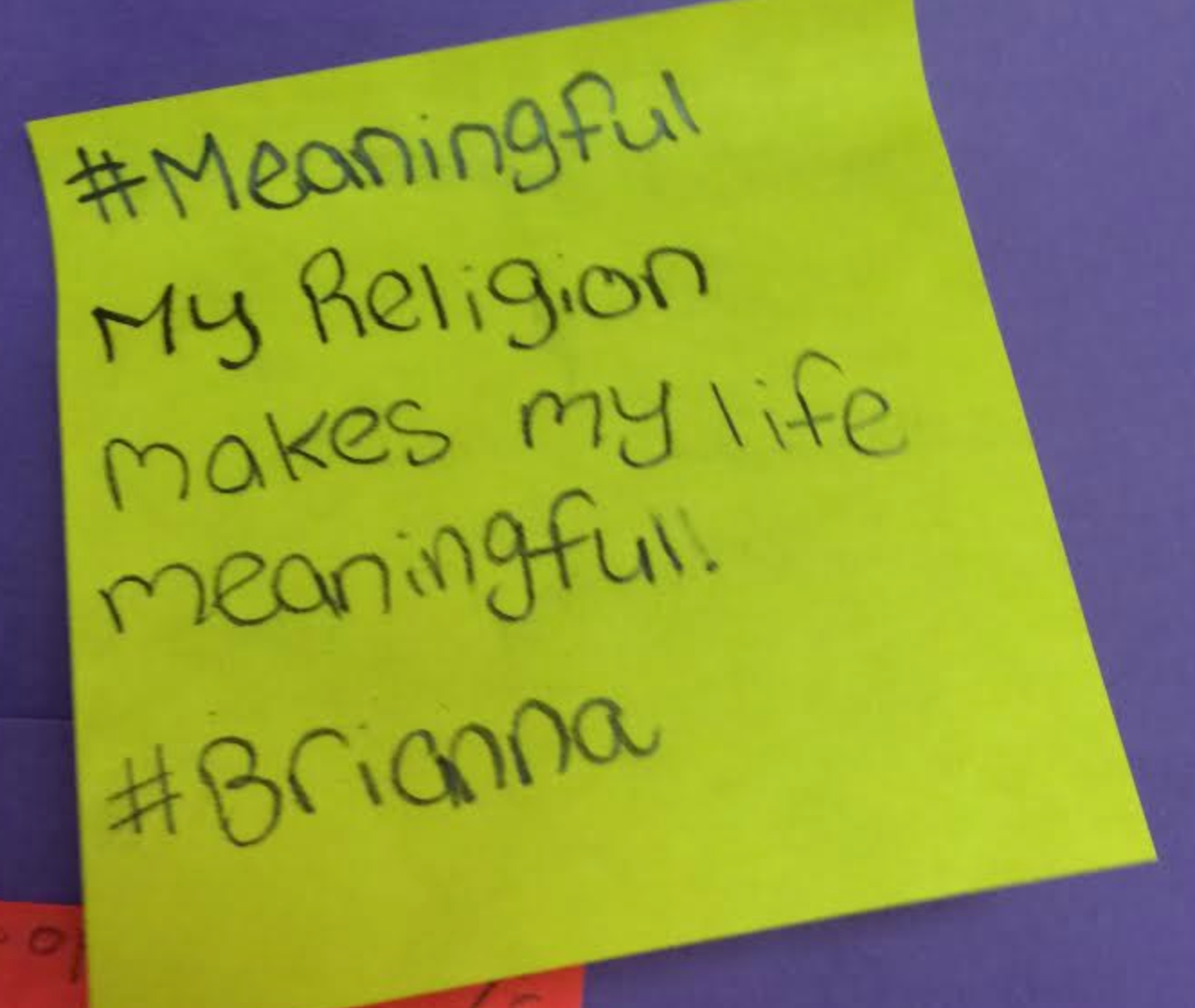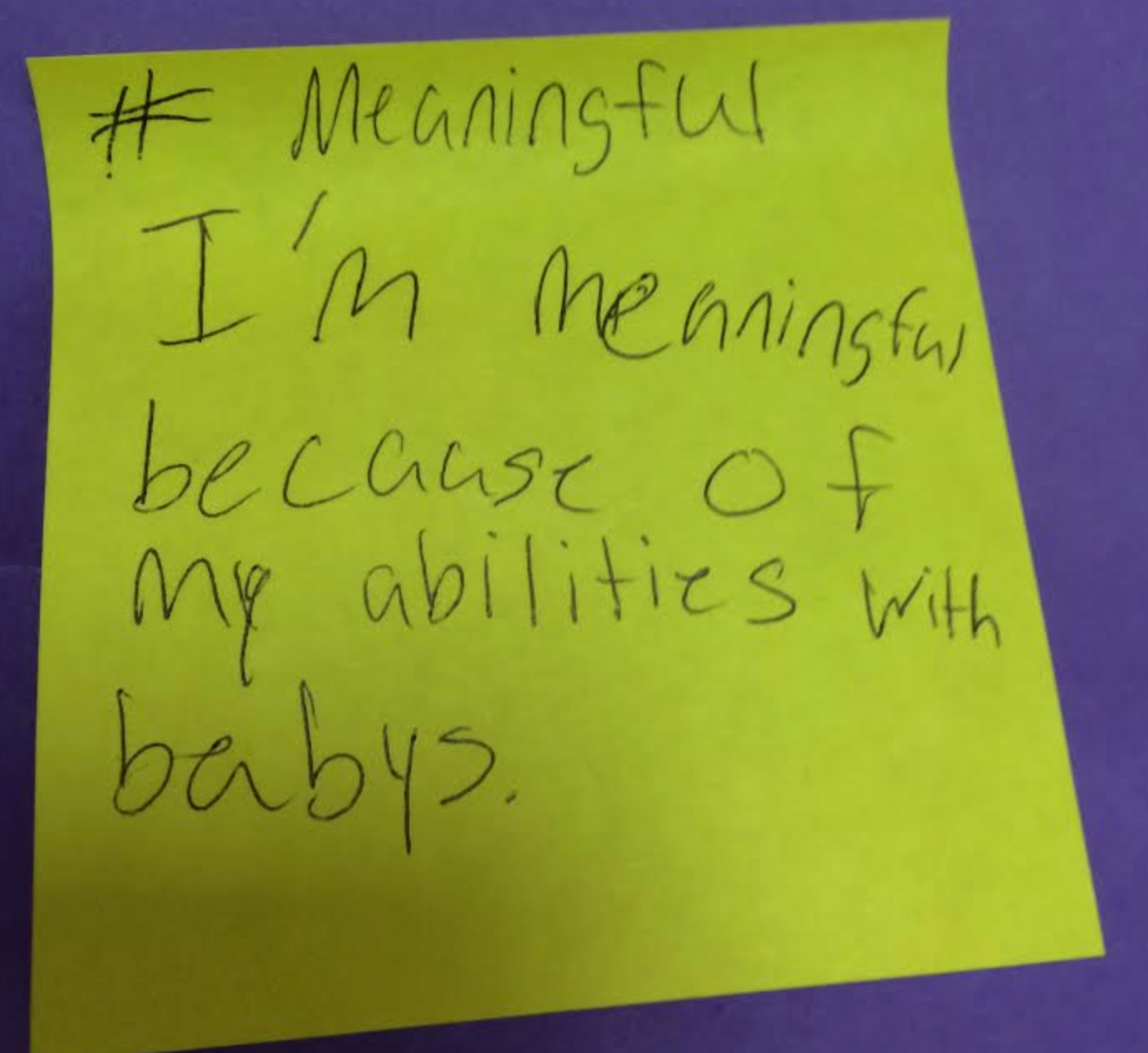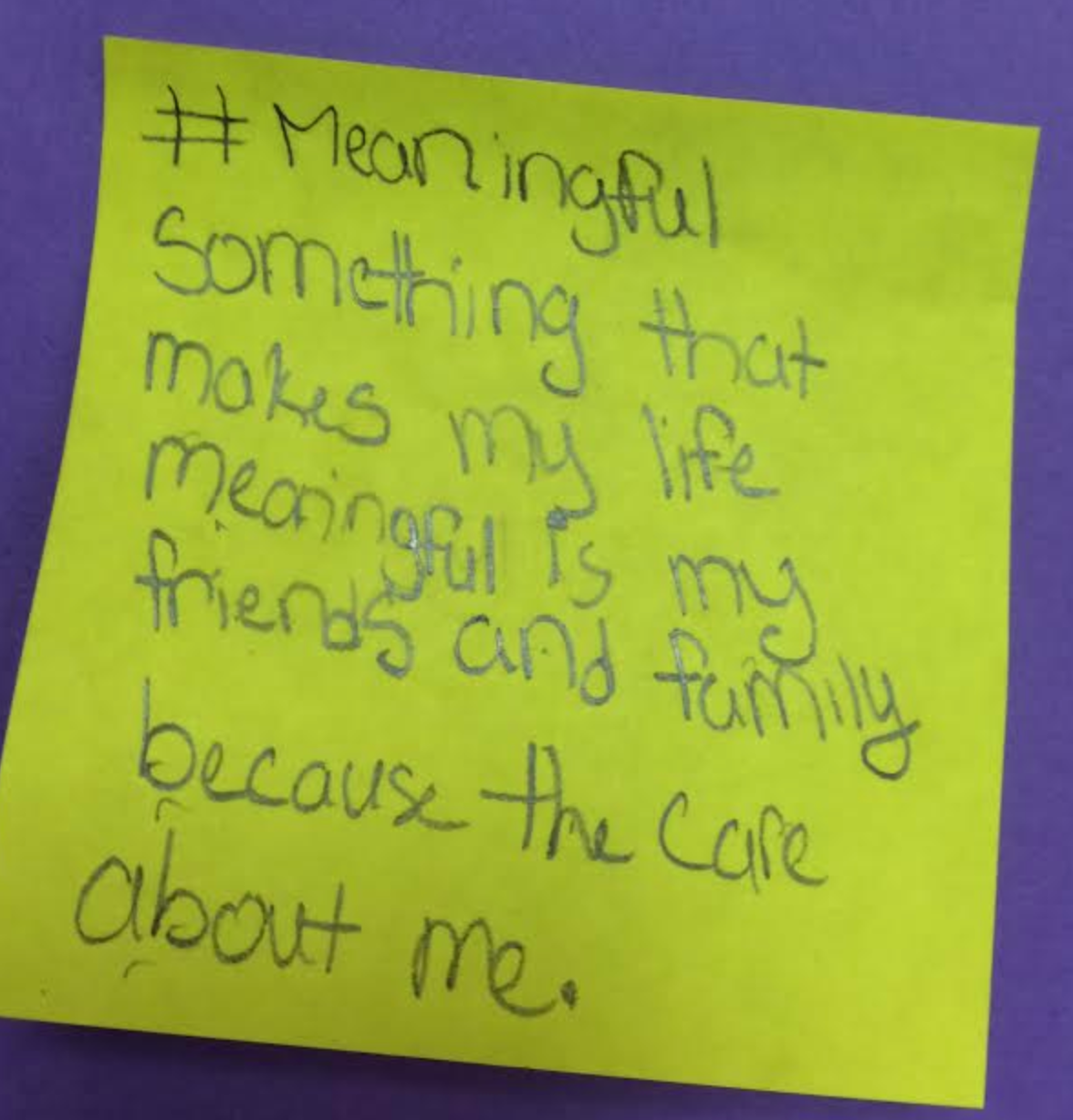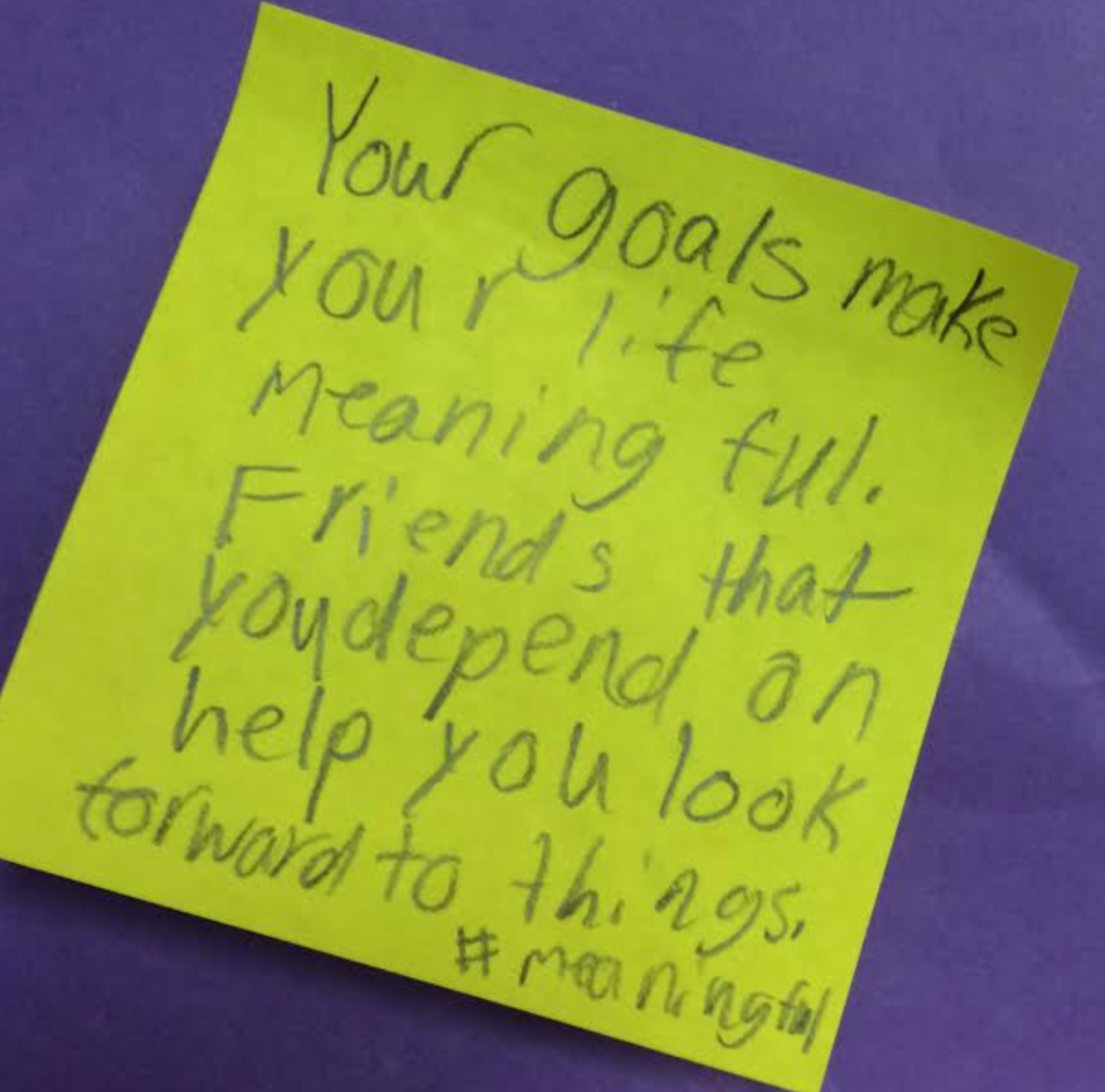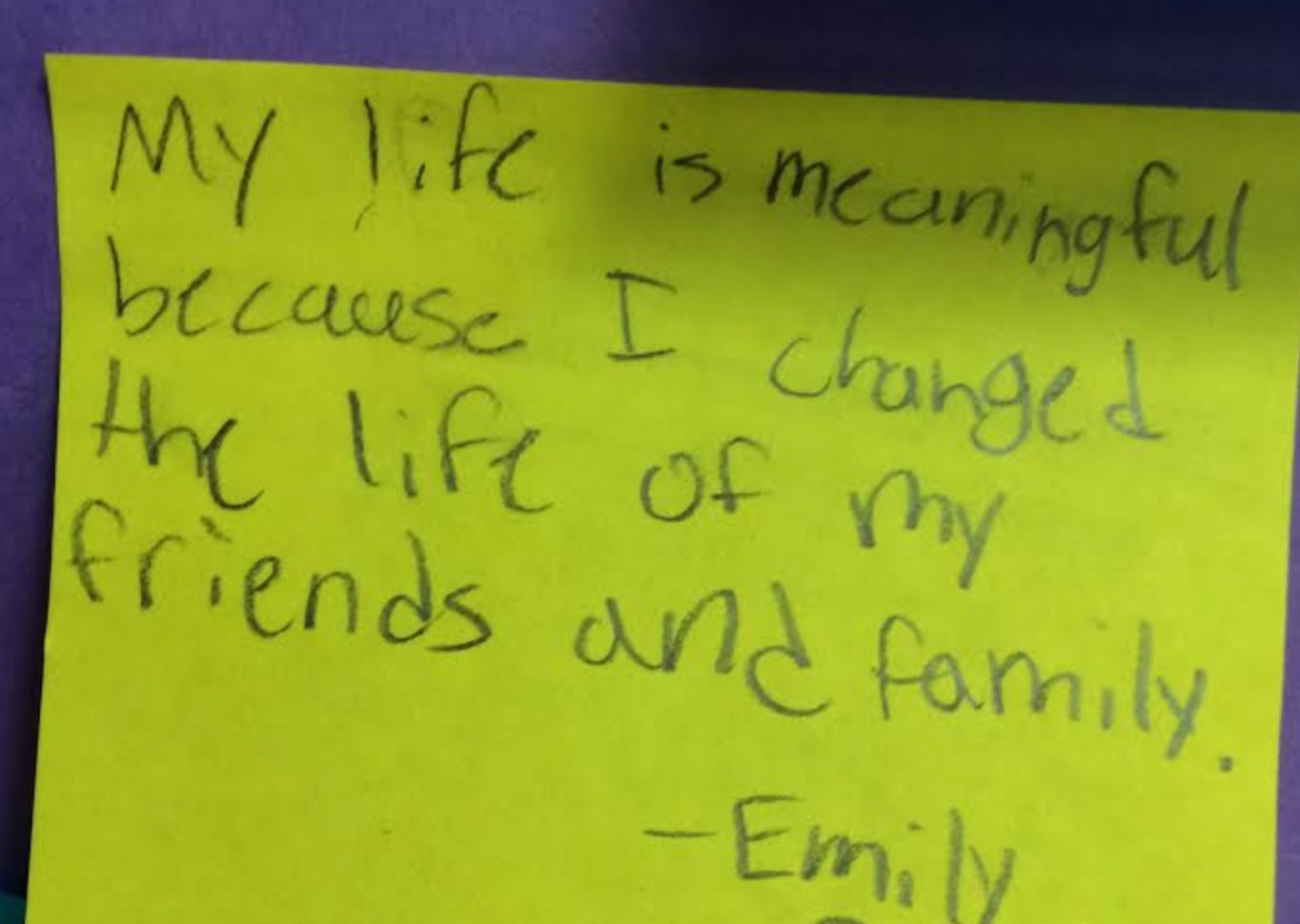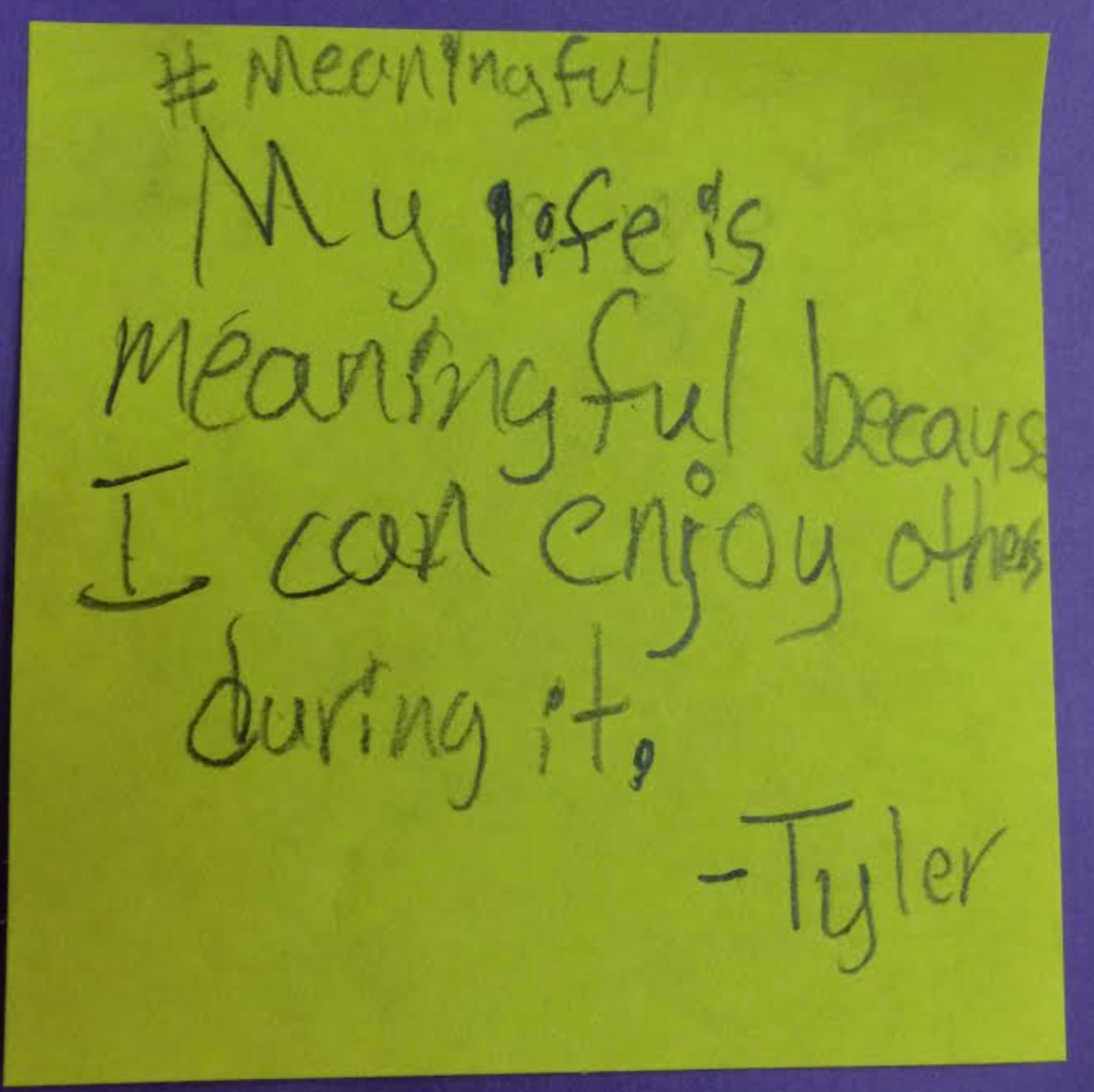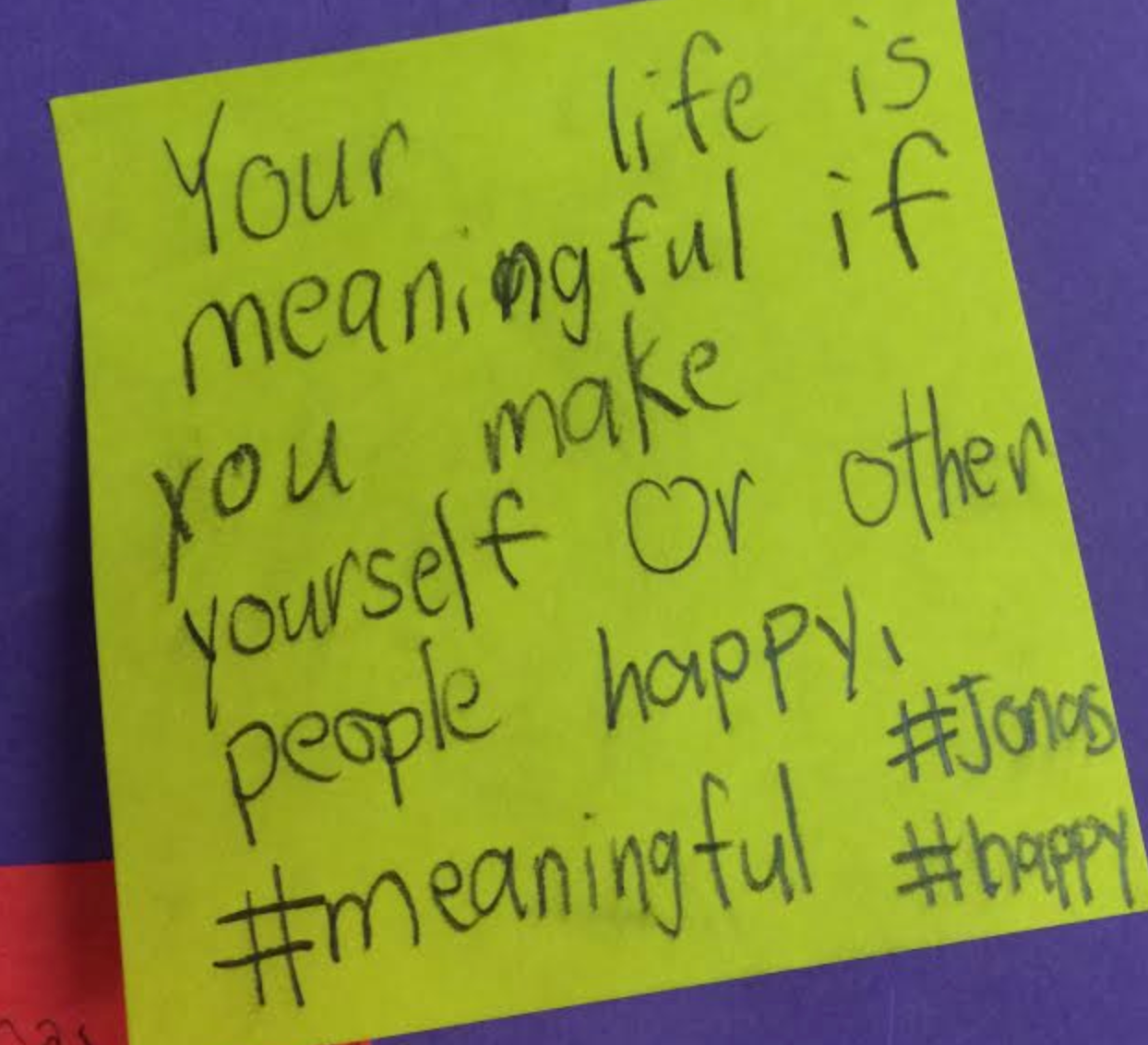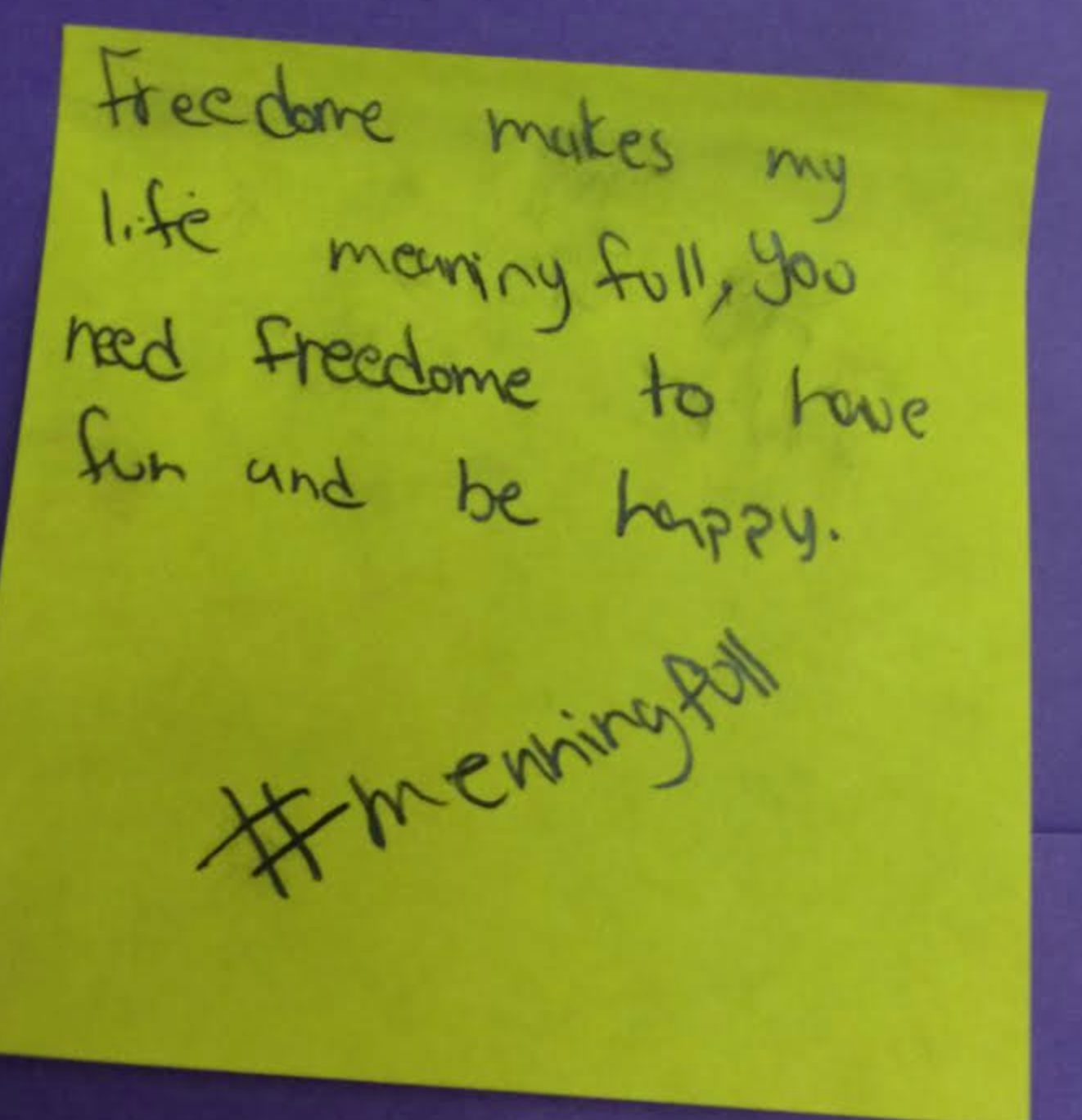Making Lives Meaningful: Helping Kids Find "Meaning" in Their Lives
"It is our light that scares us, not our darkness," Drew Dudley says. Drew Dudley is just one of the speakers my students have heard speak in the past few weeks in preparation for our TED talks.In some cases, I think that our light--our strengths, and our successes--can be harder to accept than our faults. In fact, we are so quick to accentuate our faults; we are so quick to judge ourselves and make our imperfections obvious in an effort to express humility--or maybe it's to prepare those around us for the mistakes we might make. Regardless, we take our humility too far--too far to the point that it becomes self-deprecating. I see this a lot in my kids. They are so apt to view their achievements from a deficit perspective, and much less apt to view their contributions as meaningful and worthy of praise. What's more is that they hardly, if ever, take the time to recognize their importance in the world.I know what some of you are thinking: Kids today are way too proud of themselves, and I see parts of this argument. The "special" argument is a hot topic in our country, and I think I'm arguing that all kids are "special"--just not in the typical "entitled" way that many people describe it.
Are all lives meaningful?
In chapter 4 of The Giver, one of the elderly people reveals the community's attitude on Birthmothers. In this utopian society, Birthmothers are seen as relatively useless, as mere capsules for child growth, and aren't respected or valued beyond that. Specifically, within the story, the elderly woman who reveals this value states, "Well, they tried to make her life sound meaningful," referring to a Birthmother, Edna, who had recently passed away, "And of course, all lives are meaningful, I don't mean they aren't. But Edna. My goodness. She was a Birthmother, and then she worked in Food Production for years, until she came here. She never even had a family unit."
The kids were shocked and appalled at this attitude towards mothers, nonetheless, another person. I anticipated that this would be a novel idea to them, especially with Mother's Day just a few days prior to this discussion.
"But we have a WHOLE DAY for moms!" Alicia said.
My students excitedly chattered about their responses to this extremely remarkable idea--that mothers in this utopian society would not be valued. And let's not discount the fact that they were perplexed by the mere thought that birthing children was a benign "assignment." Regardless, this became the focus of our discussion today, as it was also my essential question for the day: What makes a life meaningful? Are some lives more meaningful than others? Their natural response was, of course, an emphatic "NO," as I'm sure they knew where this conversation was going.
Shortly after, one of my girls raised her hand, and in so many words, stated, "I think that everyone's life is meaningful, just in different ways. It depends on your perspective and on your values," leading into yet another seamless connection to our unit on values from the Revolutionary War, as well as a brief connection to Miles Tuck's discussion of "purpose" from Tuck Everlasting.And so, as we built upon the past few days of "hashtagged" topics, our initial activity on who you "were," who you "are," and who you "want to be," and all of the wonderful learning we've done this year, I asked them to expand upon what makes their own lives meaningful, in an effort to give them more fuel towards our essential question: What makes you who you are?
I praised their increased vulnerability over the past few days and their willingness to go outside their respective comfort zones and take things seriously. I reminded them of the importance of considering their values and their perspectives when writing why their lives were, in fact, meaningful. Here was the result:
Not only did I allow the kids the chance to think differently today, but I provided them the chance to recognize why they're special--no, why they're meaningful--to the world. This lesson on what makes our lives purposeful and meaningful was the perfect dosage of humility coupled with self-love--the perfect addition to a unit on what makes you who you are. In fact, I think we could all use a dose of this. Every so often, we all need a chance to recognize that we are important to the world, that we make a positive impact everyday, and that simply by being in someone's life or caring for others we can add meaning to each of our own little worlds, no matter how little or insignificant they may seem.


